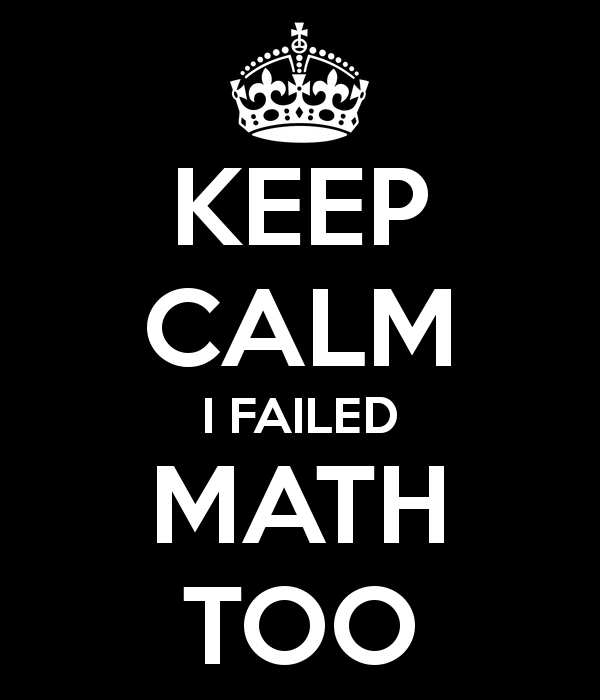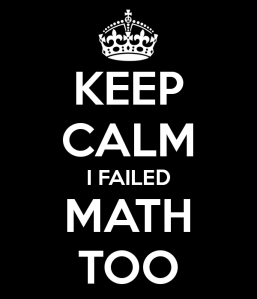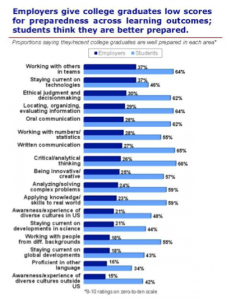Failed Math? So Did I.

by Kathy Seaton
 I failed college algebra. Nearly failed finance. Then almost got kicked out of my MBA program for sinking my simulated company because of a tragic financial decision.
I failed college algebra. Nearly failed finance. Then almost got kicked out of my MBA program for sinking my simulated company because of a tragic financial decision.
However, I did graduate and got my MBA—barely. My boss would tell me to “use my MBA.” I was never really able to do that—because I had a hard time using the numbers to make strategic decisions. I just kind of went with my gut, which usually worked, but I would have been better off if I could have truly mined the data. I finally realized that my math acumen was holding me back.
You want to land one of 2015’s best jobs? From my research, you might want to consider honing your math skills.
According to a recent survey completed by CareerCast.com, many of the top 10 jobs in the U.S. require strong math skills. Leading the list are mathematicians, statisticians, and data scientists. And other attainable jobs that made the list include biomedical engineer, software engineer, and computer systems analyst.
Did you know that jobs heavy in math skills are paying nearly 3 times of the national median wage? And they also have a strong growth outlook for the future. While these positions are financially rewarding they also offer opportunities for advancement and surprisingly differ from the common perceptions about math. Soft skills like communication, leadership, problem solving, and teambuilding combined with a strong math background are highly valued.
Related: The Best Jobs of 2015
Let’s look at a job in in the Information Services industry. Embedded Systems Engineers are earning nearly $145,000 annually and 52% jobs are in California. In addition to math skills, these engineers are leaders, creative, and can work well in team situations.
Related: Embedded Systems Engineers are Driving Business
 Some of the top employers of people with strong math skills include Boeing, Google, Edward Jones, and the U.S. government. Google is said to be one of the most desirable employer in the world and engineers are the rock stars of the office. Interns start at $70,000 to $90,000 salaries, while software engineers pull in $118,000 and senior software engineers make an average of $152,985. But you just can’t walk in and get a job at Google. They receive over 2.5 million applications a year, yet only hire about 4,000. So what does it take to land a job at Google? Amongst the list of other coding requirements, Google seeks out candidates that have a background in abstract math like logical reasoning and discrete math, which benefits the computer science field.
Some of the top employers of people with strong math skills include Boeing, Google, Edward Jones, and the U.S. government. Google is said to be one of the most desirable employer in the world and engineers are the rock stars of the office. Interns start at $70,000 to $90,000 salaries, while software engineers pull in $118,000 and senior software engineers make an average of $152,985. But you just can’t walk in and get a job at Google. They receive over 2.5 million applications a year, yet only hire about 4,000. So what does it take to land a job at Google? Amongst the list of other coding requirements, Google seeks out candidates that have a background in abstract math like logical reasoning and discrete math, which benefits the computer science field.
Read more: 11 Skills You Need To Master To Land A $100,000 Engineering Job At Google
According to the graph published by the Washington Post earlier this year, there might be a disconnect about what students believe is important to employers and what those employers think. Check out this graph and you will see that employers, more heavily than students, value math related skills.
So what free resources are available for students and employees looking to bolster their math skills? There are several from some of the top universities and providers of Massive Open Online Courses (MOOCs.)
MIT’s Engineering Math: Differential Equations and Linear Algebra
Udacity’s Intro to Descriptive Statistic Mathematics for Understanding Data
edX’s Introduction to Engineering and Engineering Mathematics
UC Irvine’s Intermediate Algebra and Pre-Calculus courses both offered through Coursera
The University of California, Irvine also offers for-credit online certificate programs in many fields. One that might be of interest is a Data Science program specifically designed for data engineers, data analysts, computer scientists, business analysts, database administrators, researchers, and statisticians.
Brushing up on your math skills is a great idea, especially if you’re looking to move forward in your current position or need some to possess those skills for a new position. I learned the hard way that the numbers drive the business. If I would have applied myself, the numbers could have added up to something greater in my career.
